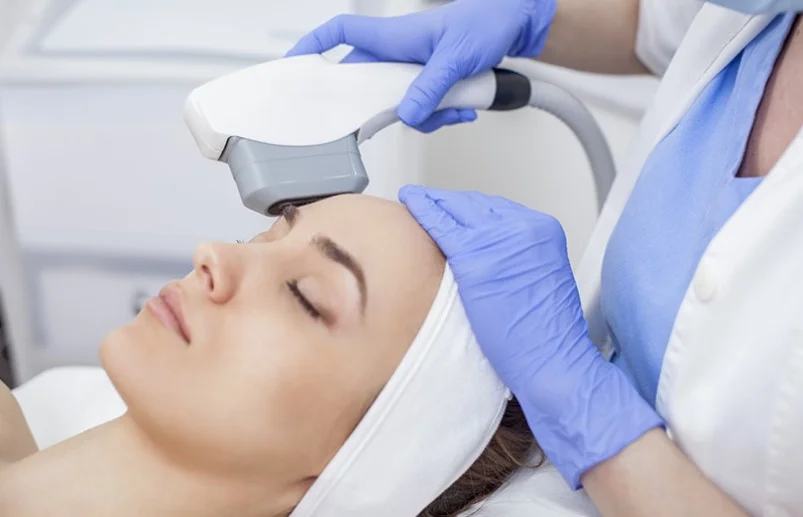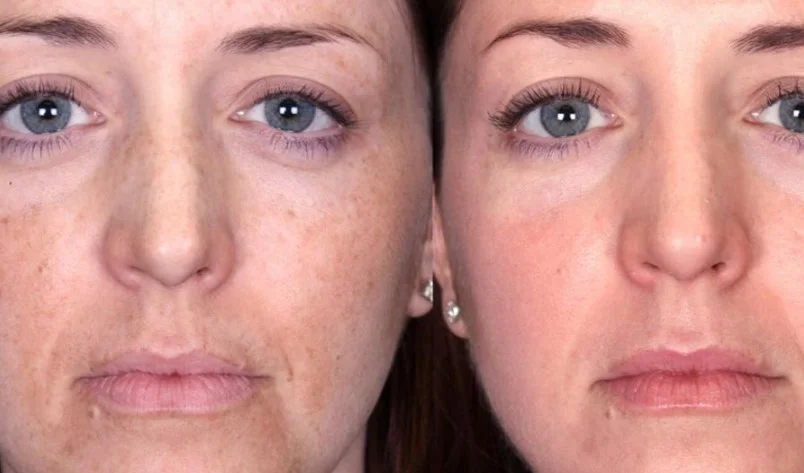IPL photofacial is a cutting-edge technology in skin rejuvenation treatments that offers many benefits to those seeking a more youthful and radiant complexion. Unlike traditional laser treatments, IPL (Intense Pulsed Light) photofacials use a gentle yet highly effective, light-based technology to treat a variety of skin imperfections, including sun damage, fine lines, wrinkles, hyperpigmentation, and redness.
Whether you want to improve your overall skin tone, get rid of dark spots or redness, or enhance your natural beauty, IPL photofacials offer a safe and effective solution.

Image Source Instagram: @iplphotofacialspecial
WHAT IS IPL PHOTOFACIAL?
IPL photofacials are a type of best treatment of skin that uses different types of light waves to improve the layers of the skin. The light helps eliminate wrinkles, sun damage, dark spots, and red spots. It’s a non-invasive procedure that doesn’t require downtime and is safe for all skin types. The result is smoother, clearer, and brighter skin that looks youthful.
BENEFITS OF AN IPL PHOTOFACIAL TREATMENT
IPL photofacial benefits is given below.
- Improves Skin Texture And Tone: IPL photo facials reduce fine lines, wrinkles, and sun damage for smoother, brighter skin.
- Reduces Hyperpigmentation: Photofacial IPL breaks down excess melanin to treat hyperpigmentation like age spots, freckles and sunspots.
- Minimizes Facial Redness: IPL photo facials can reduce redness and broken blood vessels. It can making a great option for people with rosacea or other conditions that cause facial redness.
- Stimulates Collagen Production: IPL photofacial is a laser treatment that can stimulate the production of collagen, which helps firm and tighten the skin and improve its overall elasticity.
- Non-Invasive: IPL photo facials are non-invasive and require no downtime, making them a convenient and affordable option for skin rejuvenation.
RISK AND SIDE EFFECTS OF IPL PHOTOFACIAL
Common side effects of IPL photofacials include.
- Redness And Swelling: Immediately after the ipl treatment, the skin may be red and swollen, but this usually subsides within a few hours.
- Bruising: Some people may experience mild bruising after an IPL photo facial. But this is typically temporary and will resolve independently.
- Pigment Changes: IPL photo facials can cause temporary changes in skin pigmentation. It usually passes quickly on its own and is only temporary.
- Sun Sensitivity: After an IPL photo facial, the skin may be more sensitive to the sun, so it’s essential to protect the skin with broad-spectrum sunscreen.
- Pain Or Discomfort: Some people may experience mild pain or discomfort during the treatment, but this is typically temporary and can be managed with a cooling gel or ice packs.
HOW DOES IPL PHOTOFACIAL WORKS?
IPL photofacials deliver a specific wavelength of light to the skin. The skin’s chromophores (pigment cells) absorb light to reduce skin pigment and enhance collagen production. The chromophores absorb light pulses from the IPL device and convert them into heat. This heat energy destroys the targeted skin cells while the surrounding tissue remains unaffected.
New, healthy cells replace damaged cells by naturally exfoliating, improving skin texture, tone, and appearance. IPL photofacials are effective and safe for most skin types. They are non-invasive and have fewer side effects than chemical peels and laser resurfacing.
IPL PHOTO FACIAL TREATMENT AFTERCARE
After an IPL photofacial, it’s essential to follow proper aftercare to ensure the best optimal results. Following are some guidelines.
- Protect The Skin From The Sun: Sun exposure can cause further damage and increase the risk of side effects. So it’s crucial to protect the skin with a broad-spectrum sunscreen with at least SPF 30.
- Avoid Heat Exposure: After an IPL photo facial, it’s essential to avoid exposure to heat sources such as saunas, hot tubs, and hot showers, as well as exercise and strenuous activities that may cause sweating.
- Use Gentle Skincare Products: After an IPL photo facial, it is important to use skincare products that are gentle and non-irritating. Avoid products that may cause further skin irritation. Select skincare items designed especially for sensitive skin.
- Avoid Picking Or Scratching: Picking or irritating the skin after an IPL photofacials can increase the risk of scarring and cause other complications, so avoiding these behaviors is essential.
- Follow Post-Treatment Instructions: It’s important to follow any post treatment plan instructions provided by your skincare professional, including any guidelines for managing pain or discomfort and avoiding certain skincare products or activities.
DOES IPL PHOTOFACIALS HURT?
IPL photofacials may cause some discomfort during the treatment, but the pain level varies for each person. Some people report feeling a mild snapping or stinging sensation, while others may experience a higher level of discomfort. Factors such as the patient’s pain tolerance and the areas being treated can impact the level of discomfort.
Skincare professionals may use numbing creams or cooling devices to minimize discomfort during the treatment. It’s important to talk to your skincare professional about your pain concerns before the treatment.
WHO SHOULDN’T GET IPL PHOTOFACIALS TREATMENT?
Only some people are good candidates for IPL photofacials. The following groups of people should avoid IPL photofacials.
- Pregnant Women: Women who are pregnant or trying to become pregnant should avoid IPL photofacials. As the effects of the treatment on a developing fetus are not well understood.
- Individuals With Certain Skin Conditions: People with certain skin conditions, such as rosacea, active infections, or open wounds, should not get IPL photofacials.
- People With A History Of Keloids Or Poor Wound Healing: People with a history of keloids or poor wound healing may not be good candidates for IPL photofacials. As the treatment may increase the risk of scarring.
- People With Dark Skin: IPL photofacials are not recommended for people with dark skin, as the treatment may cause hyperpigmentation or other unwanted skin discoloration.
- People With Recent Sun Exposure: People who have recently been exposed to the sun should avoid IPL photofacials, as this increases the risk of side effects and reduces the effectiveness of the treatment.

Image Source Instagram: @iplphotofacialtreatment
IPL PHOTOFACIAL COST
The cost of IPL photo facials can vary depending on several factors, including the size of the treatment area, the number of treatments required, and the location of the spa offering the treatment. On average, a single IPL facials session can cost anywhere from $200 to $800 or more, depending on the individual case.
FAQS ABOUT IPL PHOTOFACIAL
Here are some questions related to IPL photofacials. Must read the following.
1. IS IPL PHOTOFACIAL PAINFUL?
The procedure is typically described as having a mild to a moderate sensation similar to a rubber band snapping against the skin but can be made more comfortable using a cooling device or anesthetic cream.
2. CAN IPL PHOTOFACIAL BE USED TO TREAT ACNE?
Yes, IPL photo facial can treat acne by reducing the appearance of red and brown spots caused by scarring. It works by emitting high-intensity pulses of light that penetrate the skin and target specific skin conditions. The skin absorbs light energy, causing the targeted cells to break down and eventually be absorbed by the body.
By targeting the red and brown spots caused by acne scarring, it can help improve the skin’s overall appearance. However, it is important that while IPL photofacials can help improve the appearance of acne scarring, it may not be the most effective treatment for active acne breakouts.
3. HOW DOES IPL PHOTOFACIAL COMPARE TO CHEMICAL PEELS?
IPL photofacials treatment uses light energy to improve skin appearance, while chemical peels use a solution to exfoliate the skin. Both can effectively treat different skin conditions, but the best approach depends on the individual’s specific skin concerns and goals.
4. CAN IPL PHOTOFACIALS BE PERFORMED DURING PREGNANCY?
It is generally not recommended to undergo IPL photofacials during pregnancy as the effects on the fetus are unknown. Pregnancy can also cause hormone levels and skin sensitivity changes, which can impact the treatment results. It is best to consult with a qualified healthcare professional for personalized advice.